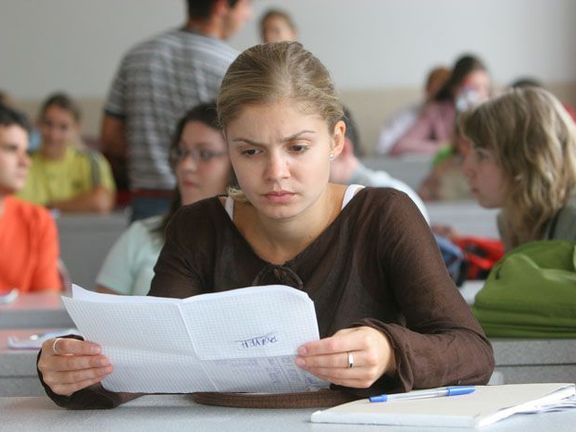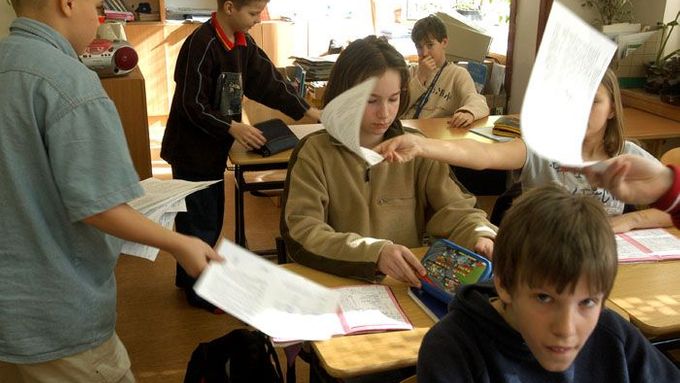
Analysis - In Czech schools, a gap between the better and the worse has widened. This is what the recent international research PISA 2006, based on surveys of 15-year-olds, has showed.
Only Germany has a similar level of disparity in reading skills, which is manily due to bad performance of immigrants' children.
The Czech Ministry of Education sees no need to alarm though and it accepts the results of the study with satisfaction. According to its experts, the decline in pupils' performance isn't statistically significant.
"We don't need to say our schools don't get better. We can as well say that they don't get worse," said Deputy Minister Eva Bartoňová.
Determined by school
Leaving aside these attempts to spin the results of the survey, what seems to be clear is that the gap between different types of schools is not getting any smaller. According to the analysis, 62 per cent of a student's performance in natural sciences is determined by school he or she attends.
Similar differences between elite and common schools were observed in Germany, Austria, Slovenia, Hungary and Bulgaria. Generally, these are countries where children of a rather early age are traditionally being sent to different kinds of schools, such as grammar schools or vocational schools.
In more successful states such as Finland, Sweden, Estonia, Ireland, Canada and New Zealand, the type of school determines only one fifth of a student's performance.
At the same time, Finns and New Zealanders have the largest proportion of their students in the "absolute top" category - in both cases, these constitute 4 per cent of the total number of students.
The Czech Republic is left with unconvincing 1,5 per cent in this category.
Not up to the challenge
What seems to be especially alarming is the part of the study which deals with reading skills. Among the Czech students, the ability to comprehend and interpret a written text is nothing short of pathetic.
This flaw is less significant in grammar schools whose results in this field have even improved since 2003.
On the opposite, vocational schools, or training centers, show the most frightening numbers. The Czech trainees are below the average level of their Romanian, Bulgarian or Montenegrin counterparts.
And its is difficult to overestimate the extent of the problem since about 40 per cent of the Czech population is educated in these institutions.
"One quarter of Czech pupils are not able to perform the very basic reading skills," the experts warn, meaning that an average trainee can't really explain what he has just read.
Changes? Let's see...
Deputy Minister of Education Jindřich Kitzberger admitted in an interview for Aktuálně.cz that the ministry is not planning any measures to reverse the trend of a widening gap within the educational system.
It will be up to the new Minister Ondřej Liška, sworn into the office last Monday, to decide what can be done about this. His predecessors have secured Czech participation in a joint project with Germany, Austria and Denmark to improve they way special subjects are taught.
However, as PISA 2006 has showed, the Czech Republic's main concern should be how to make sure the general education patterns are strenghtened at local schools, including the unconvincing reading abilities.


